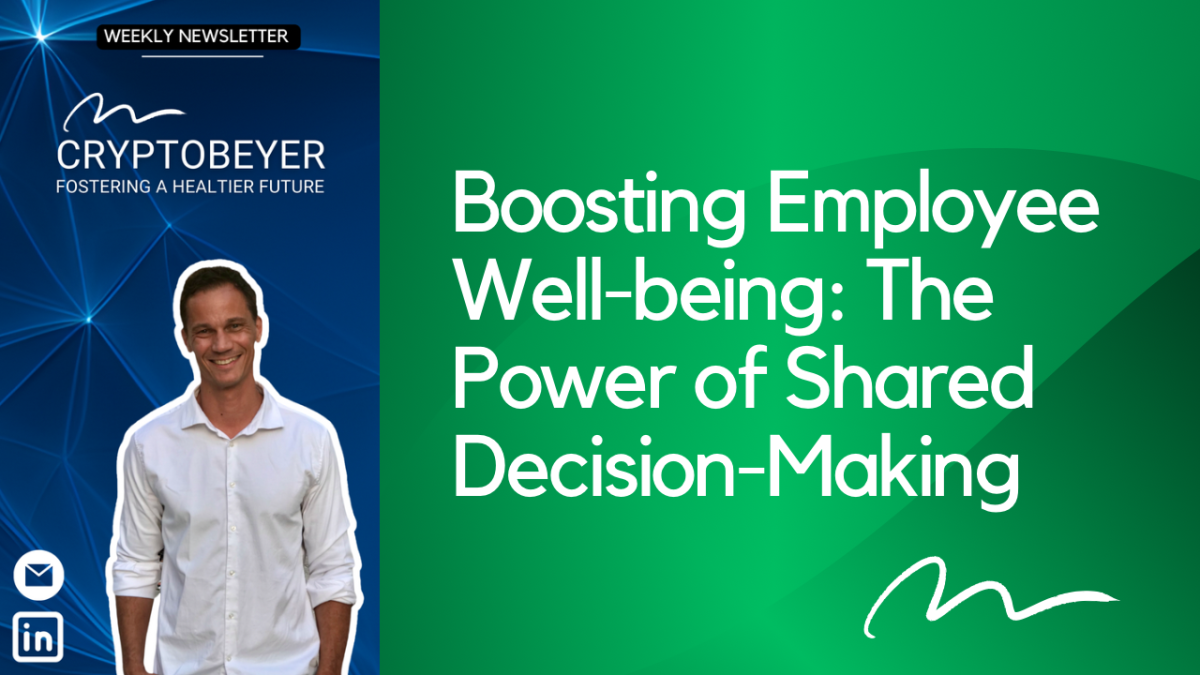In today's corporate landscape, the well-being of employees is not just an aspect but the heart of an organization's success. The health—physical, mental, and emotional—of employees profoundly influences their productivity and directly impacts a company's overall achievement. Recognizing this, providing employees with a voice in crafting health initiatives is pivotal. Let me explain how tech can assist in this work.
In short, a Corporate Health DAO, or Decentralized Autonomous Organization, operates as a digital platform where employees collaborate to decide and manage health-related initiatives within a company. It functions through blockchain technology, serving as a collective decision-making tool for coordinating fitness programs, mental health support systems, and strategies aimed at achieving work-life balance.
Within this framework, all employees can propose ideas and collectively vote on which health programs or policies the company or organization should adopt. Essentially, a Corporate Health DAO ensures that employees have a direct and collaborative role in shaping the company's health-related strategies, ensuring they align with the collective needs and preferences of the workforce. Let me tell you, health promotion in the workplace is plagued by short-sighted initiatives that are initiated by one or a few people in an organization, and successful health promotion projects need to listen closely to the needs of the people who are affected by the initiative.
Decentralized Autonomous Organizations (DAOs) can revolutionize employee well-being across various workplace dimensions. Through overseeing wellness programs and keeping track of progress, DAOs encourage employees to reach health objectives while also offering resources for preventive healthcare and promoting healthier lifestyles. Additionally, they manage the distribution of benefits such as prices or rewards after certain health-promoting activities, granting employees more control for better coverage. They monitor safety measures to ensure everyone can access resources and follow the rules, and most importantly, involve employees in decision-making to enhance motivation and productivity. Additionally, DAOs support mental health by monitoring well-being and offering resources for stress management, underscoring their potential to profoundly transform workplace well-being.
I would say that an employee-centric approach to workplace well-being is transformative.
It’s straightforward; people care when they can influence what is happening in the workplace. Empowering employees to actively contribute to shaping health programs creates a sense of ownership and commitment, resulting in heightened engagement and satisfaction. Allowing them to influence the design of wellness policies acknowledges their diverse needs, fostering a more inclusive and supportive work environment. This approach not only boosts morale and retention rates but also nurtures trust, transparency, and mutual respect between employers and their workforce, ultimately enhancing organizational performance.
Organizational structures are impacting society and our health on a global level, and technological advancements have the potential to spark a revolution in traditional organizational structures.
DAOs, rooted in blockchain technology, can change how companies govern themselves. Their decentralized nature, facilitated by smart contracts, empowers employees to collectively shape workplace health initiatives while establishing transparent and unalterable records of decisions. On a broader scale, DAOs can be used for the entire business, but that is beyond the purpose of this article.
Imagine a workplace where employees actively collaborate to craft health programs encompassing fitness incentives, mental health resources, and strategies for improved work-life balance. Inspiring! No more top-down initiatives that fail due to a lack of insight into what employees need. It’s also likely to cut costs of health initiatives as they are tailored to actual shared needs.
DAOs require technical knowledge to run and set up, and only the most daring company will give it a try. I would guess that it would be wise to use DAOs for multiple reasons in the business and not just for corporate health initiatives. One example is to use a DAO for important decisions.
But looking ahead, DAOs could revolutionize how companies approach employee health, creating healthier and more thriving workplaces that prioritize openness, inclusivity, and engagement. Whether it involves determining strategic directions, allocating resources, or implementing operational changes or a corporate health initiative, a DAO empowers employees to have a direct say in decision-making, ensuring a more equitable and participatory environment within the organization. That is fostering a healthy workplace.

